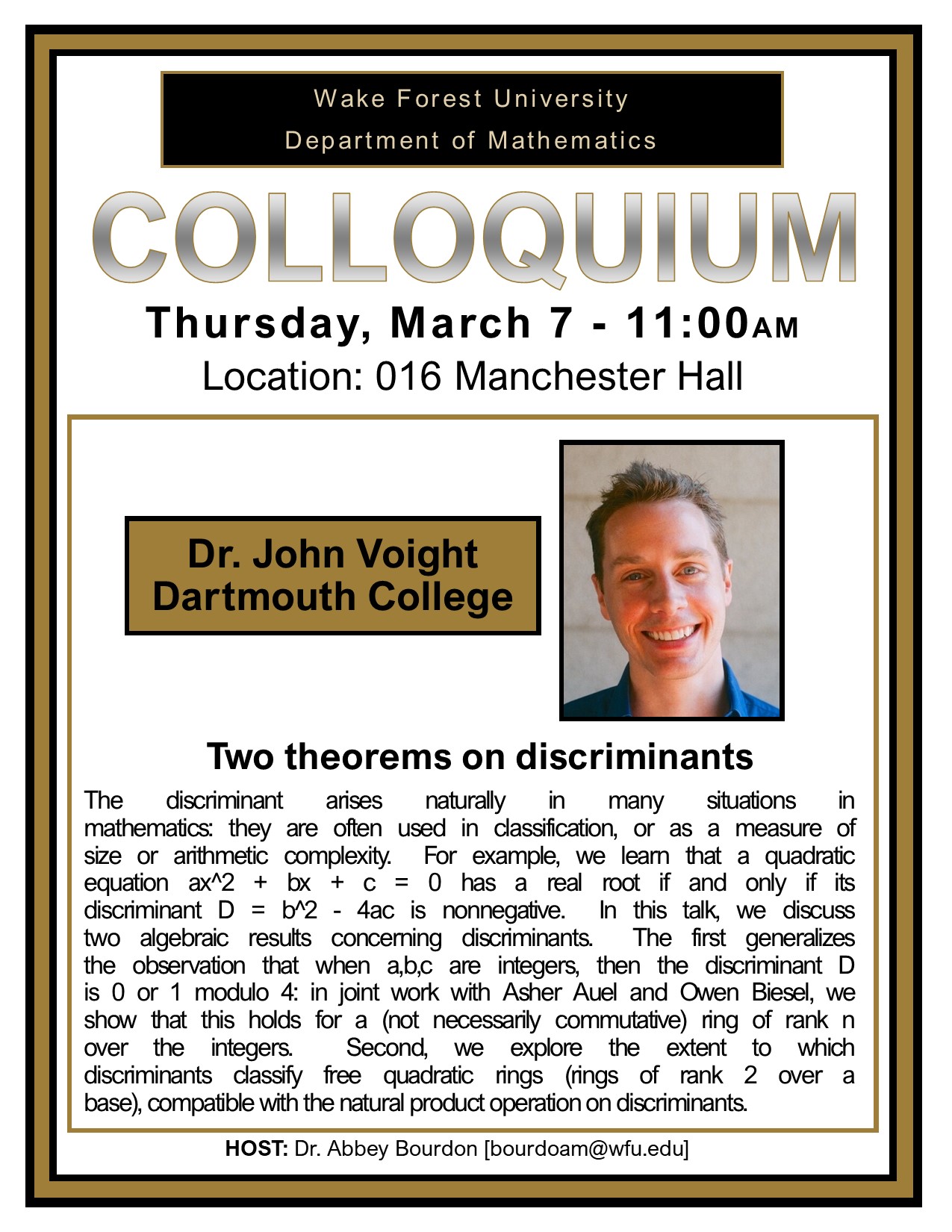
Two theorems on discriminants

March 7, 2024 11:00 am
John Voight, Dartmouth College
Two theorems on discriminants
Thursday, March 7 – 11 :00AM
Location: 016 Manchester Hall
The discriminant arises naturally in many situations in mathematics: they are often used in classification, or as a measure of size or arithmetic complexity. For example, we learn that a quadratic equation axA2 + bx + c = 0 has a real root if and only if its discriminant D = bA2 – 4ac is nonnegative. In this talk, we discuss two algebraic results concerning discriminants. The first generalizes the observation that when a,b,c are integers, then the discriminant D is O or 1 modulo 4: in joint work with Asher Auel and Owen Biesel, we show that this holds for a (not necessarily commutative) ring of rank n over the integers. Second, we explore the extent to which discriminants classify free quadratic rings (rings of rank 2 over a base), compatible with the natural product operation on discriminants.
